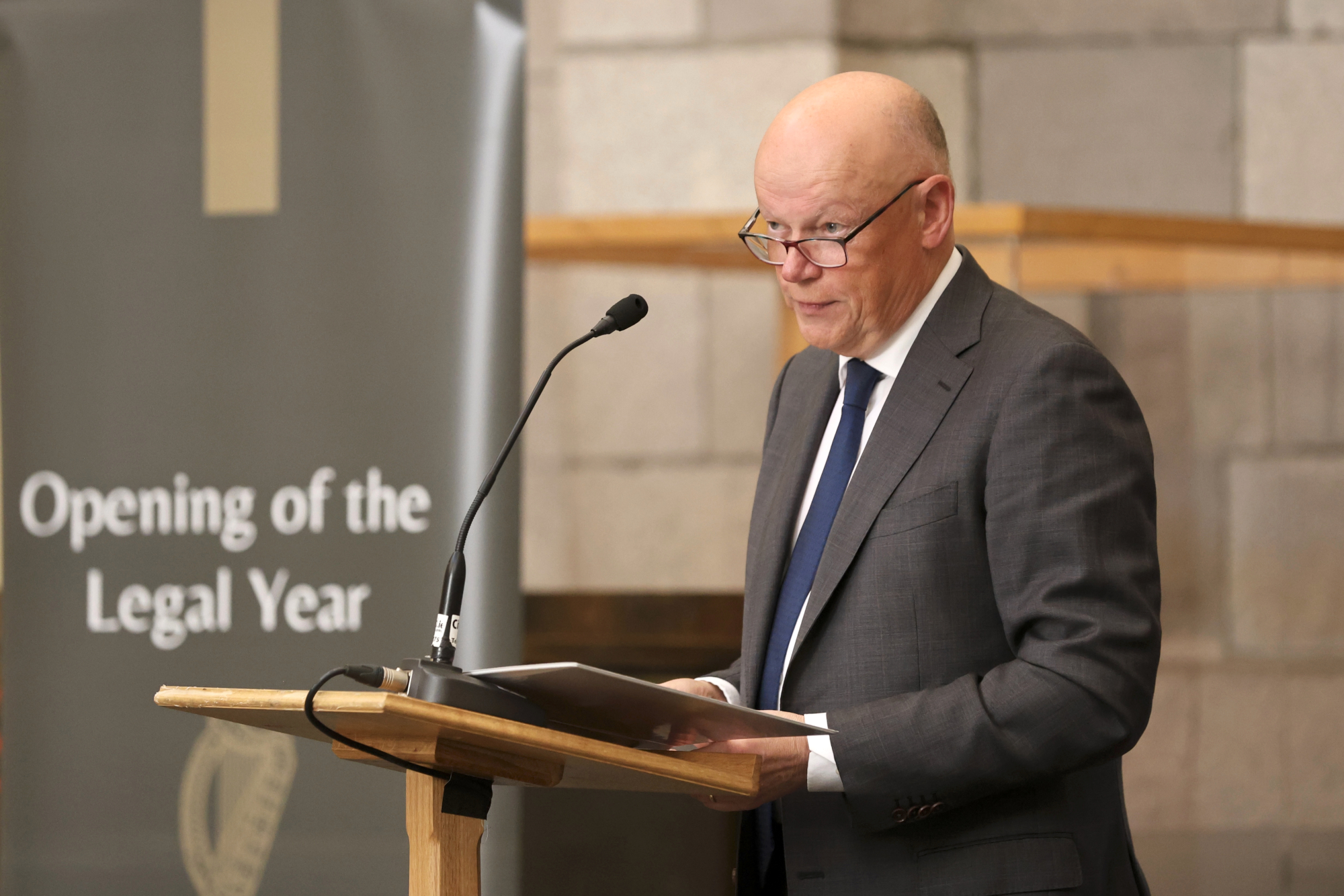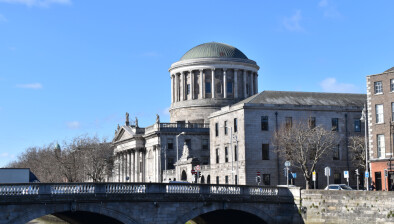Chief justice warns personal injury guidelines ‘will fray’ if increases vetoed

Pictured: Chief Justice Donal O'Donnell at the opening of the new legal year.
The personal injuries guidelines system will “inevitably begin to fray” if the government continues to veto inflation-based increases in awards, the chief justice has warned at the opening of the new legal year.
Chief Justice Donal O’Donnell said it was “simply counter-productive” to prevent the guidelines from being revised in accordance with the process set out in legislation following a Supreme Court ruling.
“The failure to update the guidelines will put the guidelines system itself at risk,” he said.
“If the Injuries Resolution Board and courts are increasingly invited to depart from the guidelines and make higher awards reflecting the effect of inflation, the guidelines will inevitably begin to fray. Over time, they will petrify and decay.
“Given the benefits of the guidelines in terms of certainty and predictability, it is not easy to understand why that would be allowed to occur.
“This is an issue which we all have to face up to.”
Later in his speech, Chief Justice O’Donnell highlighted the imminent start of the pilot project to record and broadcast proceedings in the Supreme Court online, which he said had been produced on “something of a shoestring”.
He said the Courts Service budget “could not possibly absorb even a fraction of the cost that is involved in the transmission of proceedings in other jurisdictions” and there were “technical constraints in broadcasting in a building of this age”.
“The fact is that we cannot stream the proceedings live as it would disrupt the wider network performance within the Four Courts complex,” he explained.
“So, the proceedings in the Supreme Court will be uploaded to the Supreme Court website during the evening and made available the following day.”
Chief Justice O’Donnell also chimed in on the debate around the growing length of Irish court judgments, which has come under scrutiny in recent years.
He said this was “not a phenomenon which is unique to Ireland” and also reflected increasing length of trials.
“The debate about length of judgments and proceedings, the need for concurrences or dissents, will always ebb and flow particularly in common law courts and among those who take that business seriously — and it is a good thing that people take that seriously,” he said.
“I suppose that taking a more philosophical view it can be said that if this is the worst thing on the judicial report card here, things are not too bad.”
In his own speech, the minister for justice, home affairs and migration, Jim O’Callaghan, discussed upcoming civil justice reforms, including new restrictions on judicial reviews which have proved controversial among lawyers.
Mr O’Callaghan said: “As minister, I recognise that citizens have the right to challenge what they perceive as unlawful decisions of public bodies, as a fundamental part of the checks and balances of a liberal democracy. This right must be protected.
“I must also recognise, however, that justice is not a game, the rules of which provide that the winner is the person who catches out a decision maker who failed to comply with a statutory or procedural step.
“The common good, as I said earlier, must also be weighed up on the scales of justice.
“The agendas of litigation enthusiasts who seek to stop important infrastructural developments must be balanced against the interests of the broader community and the common good.”
He said the Civil Reform Bill “will remove weaknesses in the current judicial review regime, eliminate impediments to progress and deliver reform for the public benefit”.
“I am also confident that measures in the bill will preserve the right of the citizen to ensure that public bodies act lawfully and are accountable for their decisions,” he added.
The minister also highlighted plans to reform discovery, which “will be replaced with a system of production of documents focused on those documents which parties intend to, or are reasonably likely to, rely on at trial”.
“We cannot stand idly by whilst discovery makes access to the courts the preserve only of well-resourced or institutional litigants,” he said.
“These changes should result in significant impacts around costs and delays, and they will improve access to justice.”










